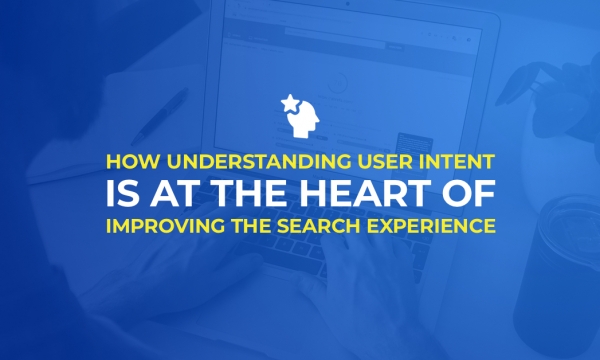Ahead of it mobile friendliness update on April 21st, Google has confirmed that mobile search results on Android devices will start to include recommendations for applications that contain content relevant to a search term. Via a prompt to install, this provides the user with a direct route to downloading or purchasing an app. This roll-out appears to have hit the UK this weekend.

What has changed?
This update in App Indexing is the latest development from Google to encourage application adoption. Previously, apps were only shown in search results if the user already had the relevant application installed on their device (with the result prompting the app to load), although this was later extended to include app recommendations relevant to that term. For example, a search for ‘stream music’ would yield something like this:

Similarly, brand results would also present that particular brand’s Google Play app:


The most recent change goes beyond simply displaying applications for broad keyword terms and instead, tries to promote applications as a platform for consuming content in their own right. Google will be delving deep into your app to deliver specific pieces of content from within your app via mobile search results.
So where previously a user may have received an app recommendation for a top-level keyword, such as “stream music”, users could potentially get more targeted app recommendations for the keyword “stream bohemian rhapsody by Queen”, based on which applications had that content available.
For example, a search for ‘London hotels’ yields the following app result, along with the TripAdvisor web page for the top 30 rated hotels in London.

In this instance, the user already had the TripAdvisor application installed on their device, so clicking ‘Install’ took the user directly to the content within the application.

In cases where the user doesn’t have the application installed, the ‘Install’ button takes the user to the Google Play store to install the app, before opening the application at the desired content. In this example, a search for the term ‘tube map’ yields a result from Wikipedia and, upon clicking install, the user is prompted to install the app and then continue to the relevant content.

How can brands capitalise on this change?
Due to Google’s evolving algorithm, brands have been making their desktop websites much more content focused for some considerable time. This change could see them apply that same mentality to their applications as well.
For many brands, development costs have often resulted in applications becoming almost purely transactional or functional. Historically, there has been little emphasis on content beyond what is necessary to allow the user to perform a particular function (such as placing an order, making a booking or recalling account data). This development has the potential to change that.
Using the travel sector as an example, prior to the change being rolled out to the UK, we were able to generate app results for the key term ‘cheap flights’. In this case, apps for Skyscanner, Skiplagged and Cheapflights appeared prominently.

However, longer-tail (but still potentially valuable) destination-centric search terms, such as “cheap flights to New York” failed to yield any app results. This is, however, where we expect this latest development to make a difference.
App Indexing offers a very real opportunity for brands to increase application visibility and downloads through content. In the travel sector for example, this could result in airlines and hotel chains integrating city guides into their application, potentially allowing them to use their apps to capitalise on terms such as ‘flights to Barcelona’ or ‘hotels near Buckingham Palace’. From a brand awareness perspective, given that an app provides a permanent presence on a user’s smartphone and therefore increased engagement potential, even non-revenue driving search terms offer great potential in the long term.
We don’t yet know whether Google is giving greater prominence to App Indexed content above mobile friendly web pages, but Google did suggest in its blog that it was keen to help app developers distribute their applications more easily, so it is something to keep a close eye on. Google has confirmed that App Indexing is a factor in mobile search rankings for Android users, and this may push brands to perform the necessary app-website linking in order optimise their assets for this.
Does this development change your app discovery strategy?

Our recent Mobile Gambling Intelligence Report highlighted the difficulties that brands experience in ensuring that their apps reach their desired audiences, particularly in heavily regulated sectors.
Historically, app accessibility from mobile search relied on a brand having an optimised, high ranking web page, paid adverts and for existing customers, an indexed app.
The latest development in App Indexing represents an additional and free method for app developers and brands to reach the Android audience. App development, deployment and indexation can now be categorised as a customer acquisition activity in its own right and it continues to be a means to serve the brand-aware customer.
As apps will only be recommended in mobile search results if they contain content relevant to search query, in-app content is now more important than ever. App optimisation has evolved from being predominantly ‘around’ the app to actually within the app itself. In the coming months, we expect brands to focus on reviewing and optimising app content in the context of mobile search, and to start to view their apps as an integral part of their content distribution strategy.
App store optimisation (ASO) is still critical to app discovery within the Google Play ecosystem, but keyword selection and strategy may well start to mirror that of the more traditional search marketing strategy.
Across all markets, generic keyword selection for ASO and discoverability within the app store is currently reflective of short tail, high volume phrases. Google’s development may now force brands to consider expanding their application keyword coverage to simultaneously cater for visibility in Google Play and mobile search.
Want to learn more about mobile app marketing and app store optimisation? Download our free Mobile Gaming App Intelligence Report or sign up to our newsletter.



